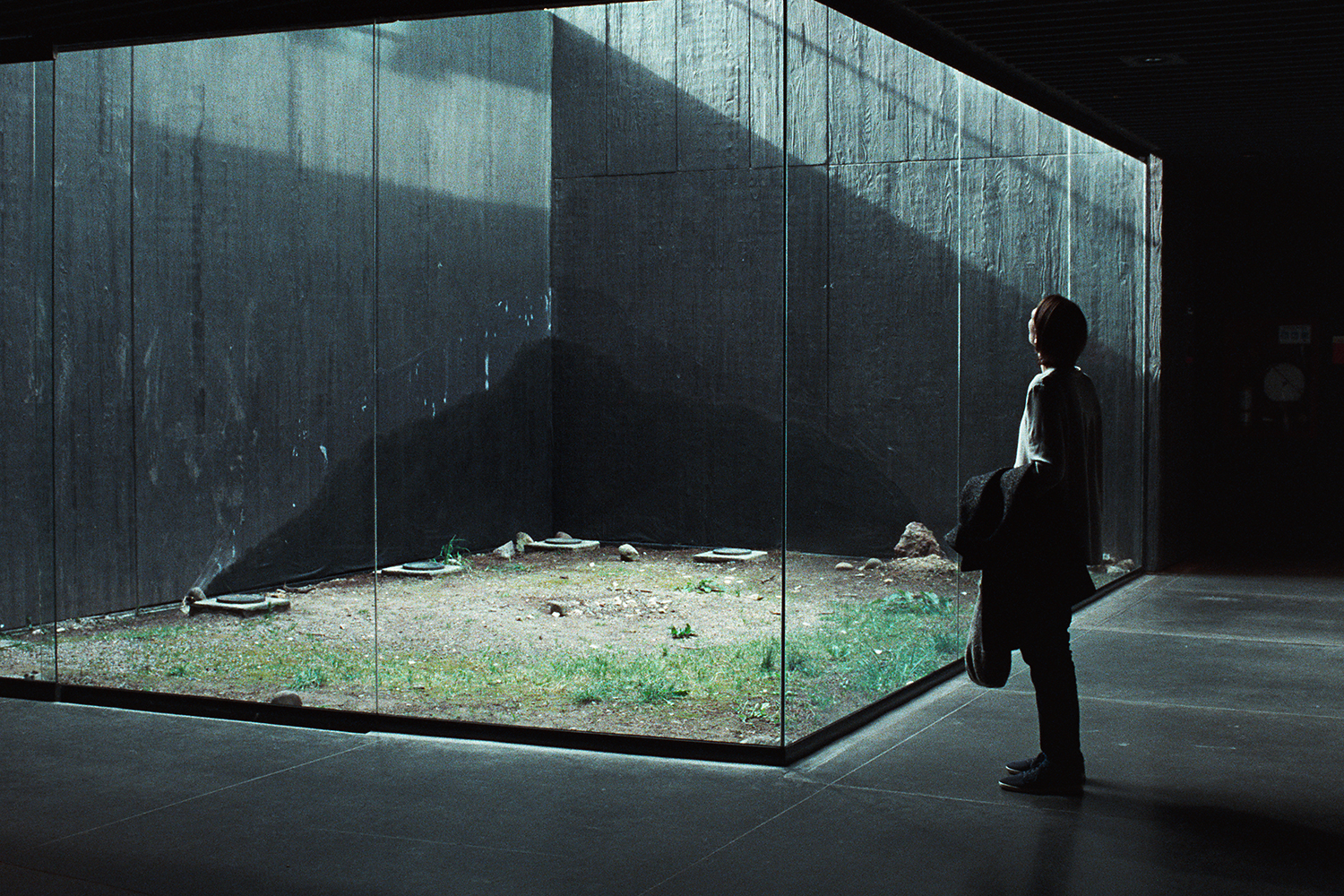NYFF: I Remember "Memoria"
 Sunday, October 10, 2021 at 3:33PM
Sunday, October 10, 2021 at 3:33PM by Jason Adams

You can quite literally say that Memoria begins with a bang, as its inciting incident is just that -- a loud noise waking someone from sleep. But as far as it ending with a whimper, well, the only whimper its end will summon will be your own, as the lights come up and you realize your mind's been blown and that you're desperate to get back into the zen dream-state that Apichatpong Weerasethakul and his on-screen co-conspirator Tilda Swinton have lulled you into. I've spent the past week since seeing the film in just such a state of want. And so the news of the film's not-normal release pattern (which was weirdly the film headline I saw upon exiting the film -- further proof this movie actually transports you into its own reality?) has brought me both joy and sadness. A melancholia of its own.
In case you missed the news Memoria will travel the country, one art-house theater to another, only screening on one screen at a single time and never, not ever they say, hitting streaming...
So on the one hand this news makes me sad because I already find my mind and body aching for revisits to the place it brought me to, and that's going to be practically impossible. But on the other hand this film, almost more than nearly any other I've come into contact with, demands the theatrical experience. And I'm not talking about "the theatrical experience" the way big money marketers do when they say you've got to see Christopher Nolan's shots of the Chicago skyline on an IMAX screen. I'm talking about the trance meditative state that real cinema can take you to. The dark room, the hypnotism of images and sound, consuming who you even are.
With Memoria Weerasethakul wants your consciousness to float right out of your body, and I'll be damned if he doesn't damn succeed. You simply can't replicate this experience at home. Unless you've got a home theater so spacious and extensive you've basically recreated a cinema in your home, at which point my point still stands. But at home you'll take a bathroom break. You'll inevitably look at your phone, grab a snack. A car will drive past your window. The spell will be broken somehow. And watching Memoria at a film festival, in a theater full of silent rapt film lovers -- with the guarantee we were all masked and vaxxed, of course -- locked and loaded for Memoria's full runtime, start to finish, well that experience is a gift, and it's a gift Weerasethakul wants to share with as many people as possible. But the gift has parameters. A form and a shape to it. And I get it. I have to. I experienced it myself.
Back to that big bang, though. The film begins with Jessica (Swinton) sleeping -- already we're in a dream-state from frame one -- when a sudden spectacular booming sound shoots her straight up in bed. She wanders her house, looking out the windows. The sound reverberates. It imprints itself on her, and us too in the audience, where Memoria's demanding sound design leaves space for it to ring, a hollow sound in its absence. Over the course of the film Jessica will become consumed with finding the source of the sound, or the next best thing -- replicating it. She visits a sound engineer and tries to explain the sound to him. We watch them futz with knobs, import files of water sounds, slowly close in on it. Add a metallic clang here, an echo there. How do you explain something beyond words? A dream, music -- sound is an experience unto itself, beyond words when you try to pin it down.
Cinema, as an interrogator of light and sound and most vitally time, is the closest we can come to explaining experience, as it's capable of transforming into experience itself. Watching reality slowly transform itself around Jessica, time and meaning disassembling around her, is a cumulative ordeal -- things that seem straightforward at first, like character names and the actors playing them, begin dissipating across her quest. And so the sound engineer disappears only to be an entirely different person a little further down the road, an echo of a name suddenly beamed in from outer space. Other people's memories take shape, at first auditorily, but who's to say that the images we're suddenly seeing in our head that accompany them are any less real? When I remember Memoria, I remember all of it. The things on the screen and off. This is a movie that, if you will go and meet it, will meet you right back. It leaves a permanent mark.
 Apichatpong Weerasethakul,
Apichatpong Weerasethakul,  Memoria,
Memoria,  NYFF,
NYFF,  Tilda Swinton
Tilda Swinton 

